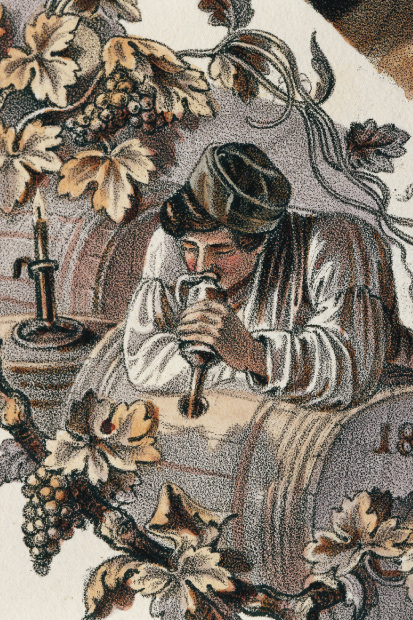Few people, perhaps, will immediately seize on this title as just the thing for a relative’s Christmas, even if their surname is Cooper. If it doesn’t have the wide appeal of the latest Lee Child or Jamie Oliver, though, there is plenty in it of interest, and not just for the many fans of wine and whiskey.
Since the unexpected commercial success of Mark Kurlansky’s Cod, there have been a number of attempts to dare to be dull, approaching apparently unpromising subjects with the attitude that anything becomes interesting if you look at it closely enough.
It can be surprisingly successful; though I probably didn’t need to read the second of the two histories of dust I’ve tackled, I loved Marc Levinson’s 2006 The Box, which showed just how many walks of life were transformed by one apparently unremarkable bit of kit., the shipping container.
The barrel, of course, was in many respects the precursor of this development, and Henry Work sets out to demonstrate the technological, cultural and economic importance of barrels from their development, probably before 500 BC, to their ubiquity for storage and transport from the Middle Ages until the early 20th century.
Wood, whiskey and wine provide a snappy alliterative title and happen also to be Work’s own direct experience; he is a cooper who has worked in the vineyards of Napa Valley, Kentucky whiskey distilleries (he knows to spell it without the ‘e’ when talking about the drinkable stuff) and in New Zealand.
Almost every conceivable commodity has been transported and stored in barrels, though: beer, of course, but also cereal crops, grains, tobacco, molasses, cement, fish — New England cod was shipped to Europe and Chesapeake oysters to the Pacific coast — even linen and crockery. The development of petroleum products led to a huge expansion in barrel production, while the phrase ‘scraping the bottom of the barrel’, rather unexpectedly, comes from the days when they were used to transport coins.
The barrel, Work points out, is a far from simple idea. Many civilisations came up with buckets, probably first by hollowing out logs and then by binding slats of wood together, but barrels tapered at both ends seem only to have been devised by Northern European Celts.
Much of this history is speculative, since the Celts didn’t write, and based on archaeological evidence, necessarily limited by the physical composition of barrels. The two chief references by Roman authors both describe unorthodox uses: one, an attack with rolling barrels of pitch which had been set alight; and the other, the construction of a pontoon bridge.
But Work’s theory that their initial development was the happy coincidence of the emergence of iron tools in Northern Europe, a plentiful supply of forest and the enthusiasm of Celts for beer and wine is quite convincing. Despite the recent growth in the subject, not enough history is about the importance of food and drink as a motivating force — for most of history, and for much of humanity still, the overwhelming motive — for innovation in trade and technology.
Work also points out that the techniques of boat-building and cooperage are similar; though that raises questions about why the Greeks, Romans and Chinese were so slow to come up with barrels themselves. He points out several obvious improvements which the barrel offers on amphorae and other ceramic vessels. They are more robust and can be hermetically sealed at each end. They can be reused. Standardised sizes, and a bewildering number of names (hogsheads, kegs, butts, casks, tuns, puncheons) could be adopted to suit the product.
The improvement which I felt densest for not having appreciated, given the number of times I have watched the competing contrade of Montepulciano in their festival on the last Sunday of August, is the fact that they roll. The Montepulciano race is uphill, so it never occurred to me that rolling out the barrel was a barrel of fun (the barrel in those lyrics is a beer barrel, by the way). It looked much more like hard work. I can’t claim Henry Work’s book is a barrel of of laughs, but is consistently interesting.






Comments